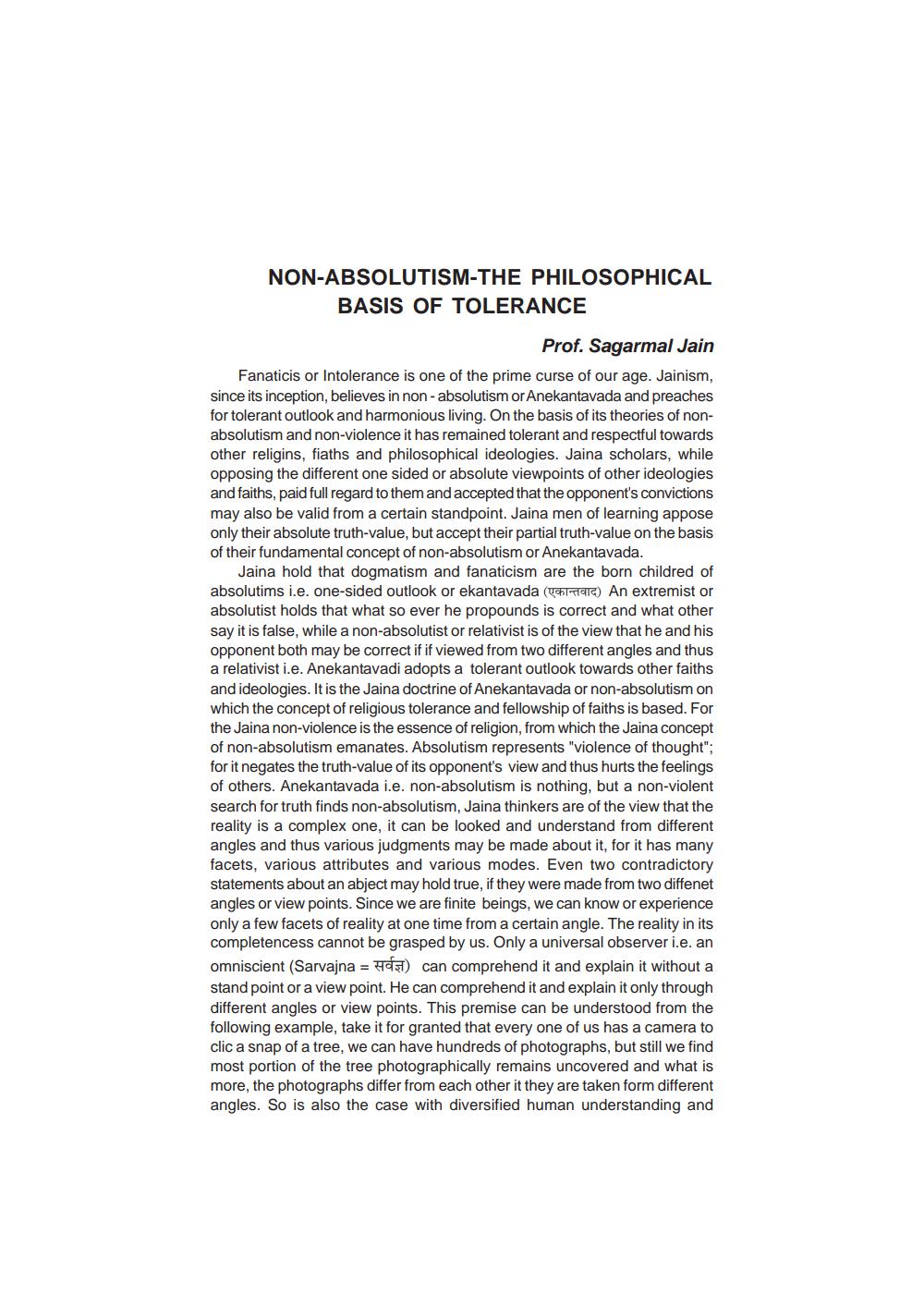________________
NON-ABSOLUTISM-THE PHILOSOPHICAL
BASIS OF TOLERANCE
Prof. Sagarmal Jain Fanaticis or Intolerance is one of the prime curse of our age. Jainism, since its inception, believes in non-absolutism or Anekantavada and preaches for tolerant outlook and harmonious living. On the basis of its theories of nonabsolutism and non-violence it has remained tolerant and respectful towards other religins, fiaths and philosophical ideologies. Jaina scholars, while opposing the different one sided or absolute viewpoints of other ideologies and faiths, paid full regard to them and accepted that the opponent's convictions may also be valid from a certain standpoint. Jaina men of learning appose only their absolute truth-value, but accept their partial truth-value on the basis of their fundamental concept of non-absolutism or Anekantavada.
Jaina hold that dogmatism and fanaticism are the born childred of absolutims i.e. one-sided outlook or ekantavada (Ustalac) An extremist or absolutist holds that what so ever he propounds is correct and what other say it is false, while a non-absolutist or relativist is of the view that he and his opponent both may be correct if if viewed from two different angles and thus a relativist i.e. Anekantavadi adopts a tolerant outlook towards other faiths and ideologies. It is the Jaina doctrine of Anekantavada or non-absolutism on which the concept of religious tolerance and fellowship of faiths is based. For the Jaina non-violence is the essence of religion, from which the Jaina concept of non-absolutism emanates. Absolutism represents "violence of thought"; for it negates the truth-value of its opponent's view and thus hurts the feelings of others. Anekantavada i.e. non-absolutism is nothing, but a non-violent search for truth finds non-absolutism, Jaina thinkers are of the view that the reality is a complex one, it can be looked and understand from different angles and thus various judgments may be made about it, for it has many facets, various attributes and various modes. Even two contradictory statements about an abject may hold true, if they were made from two diffenet angles or view points. Since we are finite beings, we can know or experience only a few facets of reality at one time from a certain angle. The reality in its completencess cannot be grasped by us. Only a universal observer i.e. an omniscient (Sarvajna = H051) can comprehend it and explain it without a stand point or a view point. He can comprehend it and explain it only through different angles or view points. This premise can be understood from the following example, take it for granted that every one of us has a camera to clic a snap of a tree, we can have hundreds of photographs, but still we find most portion of the tree photographically remains uncovered and what is more, the photographs differ from each other it they are taken form different angles. So is also the case with diversified human understanding and




